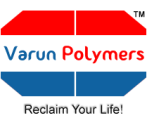Our Commitments
At VARUN POLYMERS GROUP (Varun Polymers GmbH - Austria, Varun Polymers -
India,
LINK Anlagenbau GmbH – Austria) we have always believed that the role of chemistry is to
do more good in the world. Seen this way, the work of chemistry suddenly moves from focusing on the basics of business - products and bottom lines - to life itself. In short, we
are committed - through chemistry - to the betterment of global humanity. And it is this commitment that drives all of our strategy for growth and profitability. We look outward and see challenges,
opportunities and a future full of promise. We invite you to explore our commitments to sustainability and tract our progress.
Sharing of body, mind and soul behind better
productivity there is always a better system. Productivity is largely about quality, adaptability and time of market. And that in a processing line of business, much of the battle depends on choosing
the right system at the right time which can encompass right kind of people. Moreover, it has to sustain itself through thick
and thin of life. At Varun Polymers GmbH, this is not the technology purely for the sake of technology, but for the sake of improved bottom line for the clients and
customers.
Rubber De-vulcanization
Devulcanized Rubber Division
Overview
The world presently consumes approximately 24 Million Ton of Natural and Synthetic Rubber per
year and the global demand is out stripping supply. “… the shortage will rise to 1.200,000 tons by
2015…” stated an Official from the International Rubber Study Group at the World Rubber Summit
in Kuala Lumpur. Since rubber trees take seven years to start producing and synthetic rubber
facilities take four to five years to permit and construct, no significant new rubber supplies can begin
production until 2014. While the current recession temporarily eased the shortage, production of
natural rubber has also dropped by up to 27% due to drought in Malaysia. The only solution to this
growing problem is to return used rubber back into mainstream rubber products to replace virgin
materials and this requires the de-vulcanization of the used rubber. The only commercially viable,
proven technology, environmentally benign, rubber de-vulcanization technology existing in
the world today (other than the low-quality reclaim technologies) is owned by us.
The de-vulcanization technology is for a mature technology producing a de-vulcanized rubber
product with very good chemical and physical properties, very good profit margins and a large and
undersupplied marketplace. With the shortage of rubber supply, VARUN Polymers GmbH owns the
only proven technology available to supply a high quality material to a market experiencing short-
ages of several hundred thousand tons of virgin rubber per year with increasing shortages predicted
through 2014. Accordingly, by initiating production of devulcanized rubber, an immediately strong
cash flow will stabilize the company.
The De-vulcanization
Technology
The rubber vulcanization process invented by Charles Goodyear in 1844 created a material with
remarkable properties that facilitated the manufacture of a myriad of products, including the pneu-
matic tire, giving rise to the current waste problem. Vulcanization involves a vulcanizing agent such
as sulfur being compounded with virgin rubber polymers under conditions of time, temperature and
pressure and molded to a predetermined form. When the material is vulcanized it is known as a
thermoset material, as the properties were “set” or chemically “locked” by the application of heat. In
most thermoset products such as tires, the vulcanizing agent is sulfur, and the sulfur forms chemical
cross-links between and within the macro-molecular chains of rubber molecules. Without severing
these sulfur cross links, the rubber cannot be formed into new products using the “rubber” properties.
Vulcanized rubber can be granulated and glued or bonded together into new products, but the
properties of elongation, tensilestrength, etc. are not created in the new product. This “chemistry” of
vulcanization invented by Mr. Goodyear, combined with the pneumatic tire invention of Mr. Dunlop has
created a monumental problem that can only be solved by de-vulcanization.
The advanced chemistry needed to solve this ecological nightmare was developed by VARUN
Polymers GmbH. The technology reactivates the recycled rubber by chemically severing the sulfur
bonds formed in vulcanization and then capping the sulfur to stabilize the material until it is once
again vulcanized. VARUN Polymers GmbH built and operated a pilot facility that fully automated the
production process and cleared all requirements for environmental permitting, and OSHA standards for
workplace safety. Other “de-vulcanization” processes have been developed, however, they typically des-
troy the properties of the polymer, are excessively expensive, are inconsistent or environmentally
unsound.
VARUN Polymers GmbH is not aware of any other commercially viable
and chemically sound de-vulcanization process in commercial production anywhere in the world except for the production of low quality reclaim
de-vulcanized rubber.


